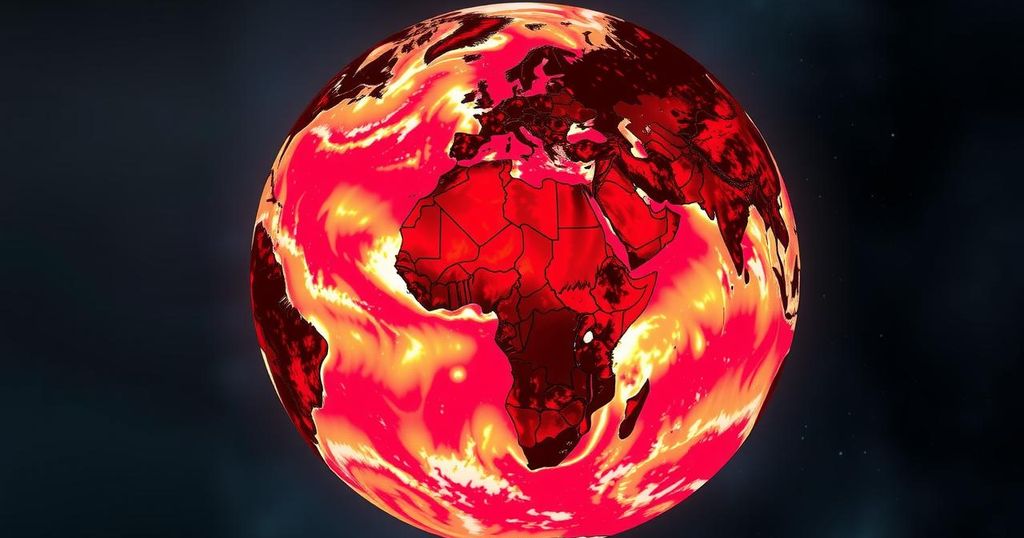The Copernicus Climate Service has announced that 2024 will be the warmest year on record, with average global temperatures reaching 1.6°C above pre-industrial levels. This increase is primarily driven by anthropogenic greenhouse gas emissions, exacerbated by phenomena such as El Niño. The year has experienced extreme weather conditions globally, prompting scientists to emphasize the necessity for urgent climate action to prevent further escalation.
New data from the Copernicus Climate Service has revealed that 2024 is set to break historical records as the hottest year ever, marking the first occasion in which global temperatures are projected to exceed an average of 1.5°C above pre-industrial levels. Although the long-term global average still remains below this threshold, the rate of warming continues to escalate. This alarming trend is largely attributable to anthropogenic greenhouse gas emissions, particularly carbon dioxide, which have reached unprecedented concentrations.
In 2024, the average global temperature was recorded at 1.6°C above pre-industrial levels, surpassing the previous year’s record by 0.1°C. The last decade has represented the warmest period on record, with the natural climate phenomenon El Niño contributing to the increase, although human activities are identified as the primary driver. Samantha Burgess, deputy director of Copernicus, attributes the ongoing climate crisis to the concentrations of greenhouse gases, underscoring the urgency of the situation.
The spiraling temperatures have resulted in severe weather patterns globally. This year saw a brutal heat wave in West Africa, persistent droughts in South America, intense rainstorms across Central Europe, and catastrophic tropical storms affecting North America and South Asia. Researchers express concern that the current warming trajectory could lead to even more extreme weather in the future. One researcher remarked, “I think it is safe to say that the temperatures in both 2023 and 2024 surprised most climate scientists – we didn’t think we’d see a year above 1.5°C so soon.”
To mitigate the impending climate crisis, experts assert that reducing greenhouse gas emissions is essential. Dr. Zeke Hausfather emphasizes that every increment of temperature rise can have serious consequences, noting that limiting warming to 1.6°C or 1.7°C could significantly lessen adverse effects when compared to a more drastic increase of 3°C or 4°C. The scientific community remains optimistic that proactive climate measures, particularly a shift towards renewable energy sources, can diminish the impacts of global warming and foster a sustainable future for Earth.
The issue of global warming has become increasingly critical in recent years, with rising temperatures posing significant threats to ecosystems, weather patterns, and human health. The Copernicus Climate Service provides vital data that helps scientists and policymakers understand the extent of climate change and its potential implications. Greenhouse gas emissions, primarily from human activities, are the main contributors to this ongoing crisis, and their effects are manifested in various extreme weather events occurring around the globe.
In conclusion, 2024 is poised to set a new record as the hottest year in history, driven primarily by human-related greenhouse gas emissions. The concerning temperatures have already led to severe weather events worldwide, reinforcing the urgent need for climate action. Experts advocate for substantial reductions in emissions and a transition to renewable energy to mitigate further warming and secure a sustainable future for the planet.
Original Source: news.novyny.live






